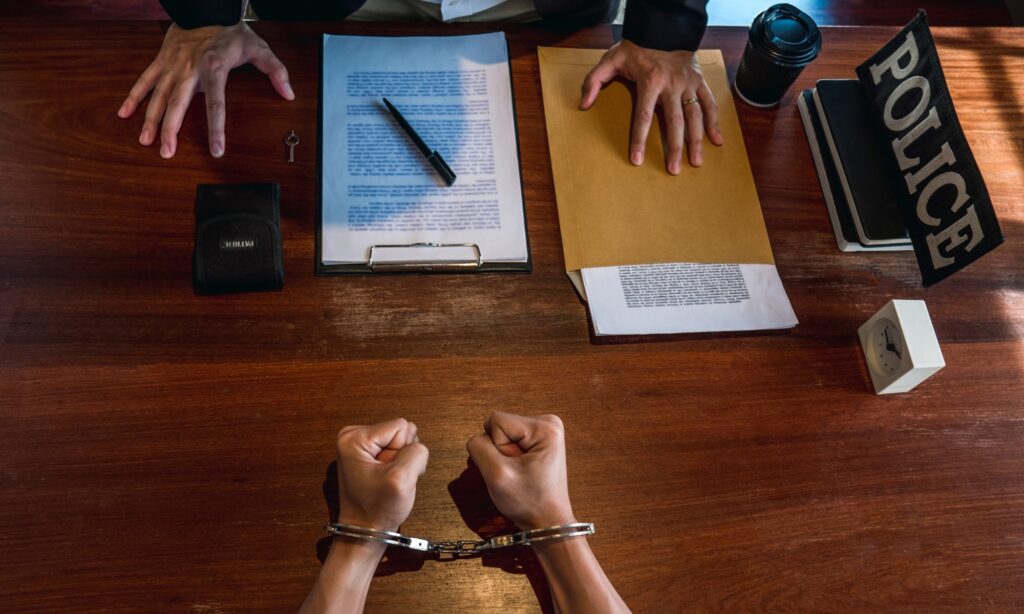After you’ve been arrested and convicted, your penalties moving forward may include probation. Probation is when an offender is allowed to return to their community under the supervision of their parole officer and certain regulations. It’s meant to rehabilitate a person as they’re immersed in community rehabilitation.
Whether or not you’ll receive the opportunity for probation can depend on the context of your case, such as your age, the situation, and other factors. However, probation is a privilege–in some cases, probation is awarded to previously incarcerated individuals who displayed good behavior and thus earned a split sentence.
Probation allows you to maintain limited freedom, as long as you obey the restrictions you’re under. If you’ve knowingly or unknowingly violated a probation regulation, you need to contact an attorney immediately.
Types of Probation
If you’ve been sentenced to a period of probation, you may be under one of the following types of probation:
- Regular Probation: obey certain conditions, regular contact with probation officers
- Administrative Probation: obey certain conditions, no probation officer
- Community Control: supervised custody, restricted travel permissions, and maybe under police surveillance
- Community Control II: full-time supervision of probation officers, confined to your residence, subject to electronic monitoring
- Sex Offender Probation: strict supervision of a probation officer, court-mandated treatment
Each type of probation will have different restrictions, if you’ve broken a restriction you need to contact an attorney immediately
What is a probation violation?
You’ve committed a probation violation if you’ve broken the terms of your probation, or committed a new crime. In court, the standard of proof for probation violations is much lower than in normal criminal cases. This means that your probation could be revoked because of a minor charge.
If you’ve broken probation regulations, you’ll only be penalized if the prosecutor is able to prove that you willfully and intentionally violated the rules. By working with an experienced attorney, they can strategize a defense and explain that any broken violations were due to circumstances outside of your control or they were an accident.
What acts are considered probation violations?
If you’re on probation, you can commit a technical or substantive violation.
Technical Violations
Technical violations happen when you don’t meet the conditions of your probation. Examples of these include:
- Not reporting to your probation officer on time
- Not avoiding prohibited locations or people
- Not paying your court-ordered fines
- Not appearing in court
- Not getting a job
- Failing a drug test
- Not reporting to rehabilitation programs
Substantive Violations
A substantive violation is more serious and thus the punishments are more severe. A substantive violation occurs when a new crime has been committed during your probation. There’s no statute of limitations with substantive violations. Some examples of substantive violations include driving drunk, selling or possessing illegal drugs, using illegal drugs, and shoplifting.
As mentioned previously, probation violation cases are different from criminal cases. Prosecutors need only prove that you most likely violated the terms of your probation in order to convict you. This makes working with an experienced attorney invaluable.
What happens after I’ve violated my probation?
If your parole officer or another officer of the law suspects that you’ve violated the terms of your probation, the circumstances of your violation will determine how they react. If your suspected violation was relatively minor, they may just let you go, but if you’ve committed a misdemeanor or felony act, the officer may fill out an affidavit detailing their sworn statement on how you violated the rules of your probation.
After the judge reviews the affidavit, they may issue a warrant for your arrest, or they’ll send you a notice to appear in court
Court Appearances
When you’re presented in court, you’ll have the chance to present your side of the story of the court. You have the right to a written notice detailing your violations, as well as being heard by an impartial and fair judge.
However, the prosecution will be working against you, attempting to prove that you willfully and substantially broke the conditions of your probation. They’ll do this with non-hearsay evidence, like the officer’s affidavit. Your attorney can take the facts of your case and use them to craft a defense against your charges.
What are the penalties for probation violations?
If you’re found guilty of violating the terms of your probation, you may have to go back to prison to finish your sentence. Punishments will depend on the severity of your violation as well as your criminal past. examples of light offense penalties are:
- Additional probation terms
- Behavioral boot camp
- Community service hours
- Extension of the probation period
- Mandatory rehabilitation programs and counseling
- Penalties for serious offenses include:
- Prison or jail term
- Restitution to the victims
- Monetary fines
If you’re found guilty of a probation violation, the court may also convict you of your original charges.
If you or your loved one are in need of information on Probation Violation, call us at 813-359-8667 to speak with a qualified legal professional or fill out the contact form on this page. We’re available 24/7, we offer free initial consultation and payment plans. In addition to our Tampa office, we have offices in the following cities across the state of Florida:
- Daytona Beach
- Kissimmee
- Melbourne
- Lakeland
- Ocala
- Orlando
- Fort Myers
- Sanford
- Miami
- Jacksonville
- Fort Lauderdale
- Sarasota
- Clearwater
*Additional Orlando Florida & Orange County Legal Resources
